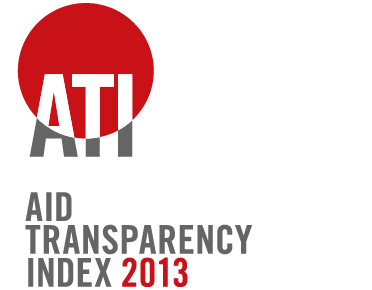Japan
AID TRANSPARENCY ANALYSIS
The 2013 Index assesses the transparency of the principal government organisations engaged in development cooperation in Japan: the Ministry of Foreign Affairs (MOFA), which is responsible for setting policy and overseeing implementation; and the Japan International Cooperation Agency (JICA), which is the main implementing agency. Several other ministries and agencies – especially the Ministry of Finance and the Ministry of Economy, Trade and Industry (METI) – are responsible for smaller amounts of development cooperation spending and/or ODA.
- Japan has not signed IATI but has attended IATI meetings as an observer.
- It has endorsed the Busan agreement and committed to implement the Busan common standard, of which IATI is a core component. Japan published an implementation schedule for the common standard in December 2012, although this currently lacks an explicit plan for implementing IATI.
- JICA and MOFA jointly run the ODA mieruka (“visualising”) initiative to increase the visibility of Japanese aid and to consolidate available online information. It currently covers approximately 1,800 projects, comprising recent technical cooperation (over USD 2m), loans and grants.
- In June 2013, all G8 countries reaffirmed their commitment to implement the Busan common standard, including both IATI and the DAC Creditor Reporting System by 2015.
- In July 2012, the Prime Minister launched an open data strategy to improve the transparency and credibility of administration and promote open data use. In early 2013 the government announced it would launch a national open data portal.
Japan performs poorly in the 2013 Index, with JICA placed in the poor category and MOFA in the very poor category. Japan has lower overall scores than other large bilateral donors including Germany, the UK and U.S., but it scores more highly than France. Both MOFA and JICA have been overtaken by other organisations that have started publishing more comprehensive, accessible and timely information in useful machine-readable formats. The amount of information available on MOFA and JICA’s development cooperation has remained more or less the same in recent years, meaning that Japan is not keeping pace with the rapid transformations in the aid transparency landscape.
RECOMMENDATIONS
- Japan should join IATI and update its implementation schedule by mid-2014 to include plans for publishing to the IATI standard.
- It should begin publishing its aid data in accordance with the IATI standard in 2014, so it can aim for compliance with the Busan standard by the end of 2015.
- Japan should consider joining OGP. This would be an opportunity to share best practice in open data and open government approaches with peers in the development community and with partners who receive Japanese aid.
